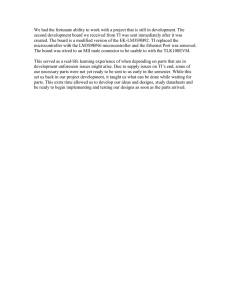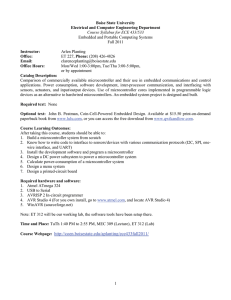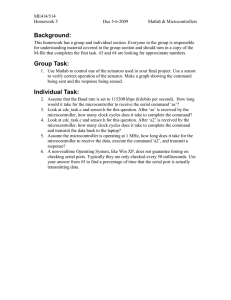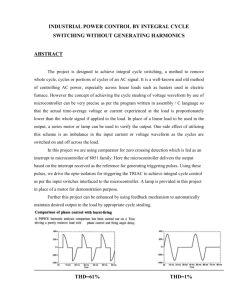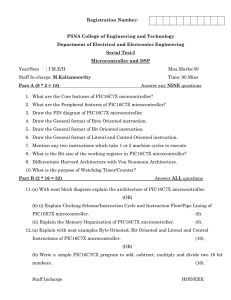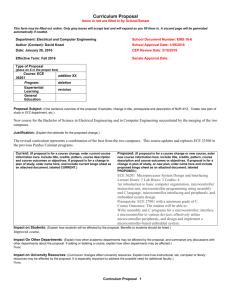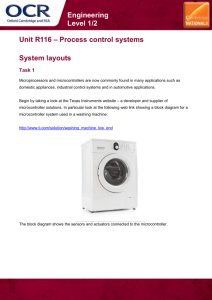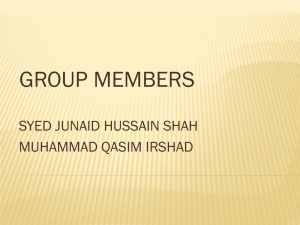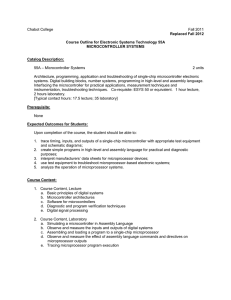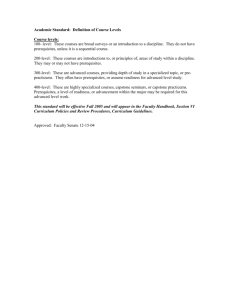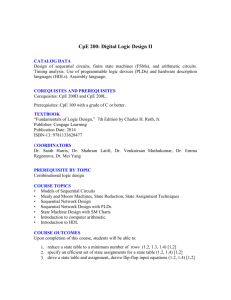CPE310L - Embedded System Design Laboratory for EE
advertisement
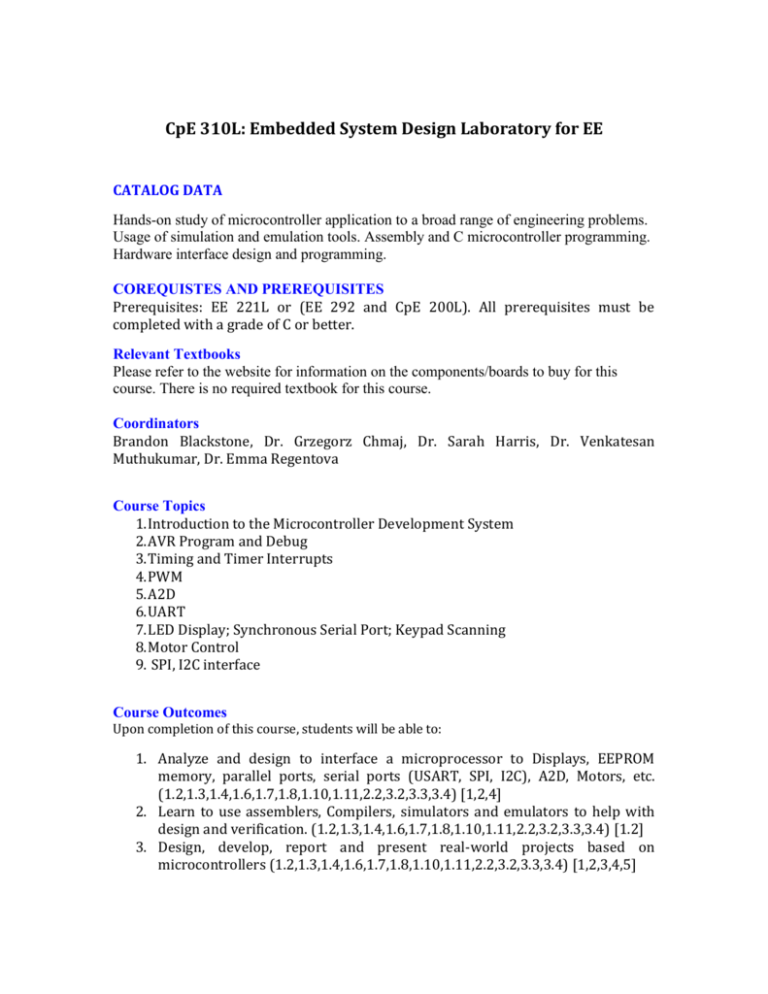
CpE 310L: Embedded System Design Laboratory for EE CATALOG DATA Hands-on study of microcontroller application to a broad range of engineering problems. Usage of simulation and emulation tools. Assembly and C microcontroller programming. Hardware interface design and programming. COREQUISTES AND PREREQUISITES Prerequisites: EE 221L or (EE 292 and CpE 200L). All prerequisites must be completed with a grade of C or better. Relevant Textbooks Please refer to the website for information on the components/boards to buy for this course. There is no required textbook for this course. Coordinators Brandon Blackstone, Dr. Grzegorz Chmaj, Dr. Sarah Harris, Dr. Venkatesan Muthukumar, Dr. Emma Regentova Course Topics 1. Introduction to the Microcontroller Development System 2. AVR Program and Debug 3. Timing and Timer Interrupts 4. PWM 5. A2D 6. UART 7. LED Display; Synchronous Serial Port; Keypad Scanning 8. Motor Control 9. SPI, I2C interface Course Outcomes Upon completion of this course, students will be able to: 1. Analyze and design to interface a microprocessor to Displays, EEPROM memory, parallel ports, serial ports (USART, SPI, I2C), A2D, Motors, etc. (1.2,1.3,1.4,1.6,1.7,1.8,1.10,1.11,2.2,3.2,3.3,3.4) [1,2,4] 2. Learn to use assemblers, Compilers, simulators and emulators to help with design and verification. (1.2,1.3,1.4,1.6,1.7,1.8,1.10,1.11,2.2,3.2,3.3,3.4) [1.2] 3. Design, develop, report and present real-world projects based on microcontrollers (1.2,1.3,1.4,1.6,1.7,1.8,1.10,1.11,2.2,3.2,3.3,3.4) [1,2,3,4,5] Program Outcomes 1. The appropriate technical knowledge and skills: 2. an ability to apply advanced mathematics such as differential equations and discrete mathematics, 3. an ability to apply knowledge of basic sciences, 4. an ability to apply knowledge of computer science 6. an ability to apply knowledge of engineering 7. an ability to design a system, component, or process to meet desired needs within realistic constraints 8. an ability to identify, formulate, and solve engineering problems, 10. an ability to use the techniques, skills, and modern engineering tools necessary for engineering practice, 11. an ability to design and conduct experiments, as well as to analyze and interpret data. 2. The appropriate interpersonal skills: 2. an ability to communicate effectively. 3. The knowledge and skills to be responsible citizens: 2. the broad education necessary to understand the impact of engineering solutions in a global, economic, environmental, and societal context, 3. a recognition of the need for, and an ability to engage in life-long learning, 4. a knowledge of contemporary issues, UULO COURSE OUTCOMES 1. Intellectual Breadth and Lifelong Learning 2. Inquiry and Critical Thinking 3. Communication 4. Global/Multicultural Knowledge and Awareness 5. Citizenship and Ethics Computer Usage Microcontroller IDE, Compilers, Simulators, Emulation, and Debuggers. Grading Labs + Reports = 70% Project: 30% Course Syllabus Preparer and Date Venkatesan Muthukumar, DEC 2014
